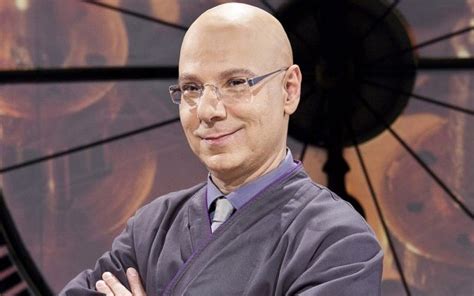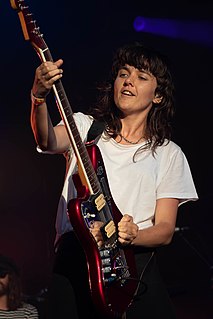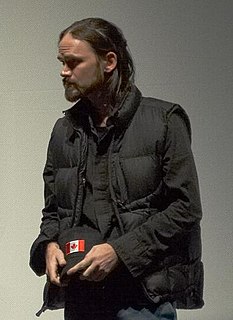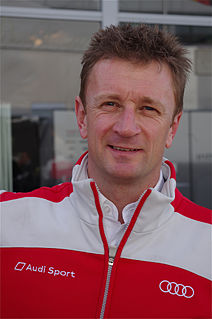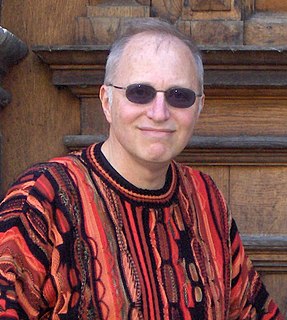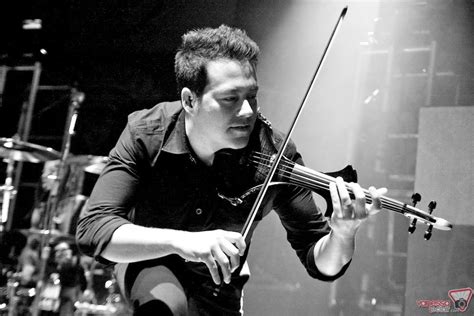A Quote by David Mamet
In playwriting, you've got to be able to write dialogue. And if you write enough of it and let it flow enough, you'll probably come across something that will give you a key as to structure. I think the process of writing a play is working back and forth between the moment and the whole. The moment and the whole, the fluidity of the dialogue and the necessity of a strict construction. Letting one predominate for a while and coming back and fixing it so that eventually what you do, like a pastry chef, is frost your mistakes, if you can.
Quote Topics
Able
Across
Back
Back And Forth
Between
Chef
Come
Coming
Coming Back
Construction
Dialogue
Enough
Eventually
Fixing
Flow
Fluidity
Forth
Frost
Give
Got
Key
Letting
Like
Mistakes
Moment
Necessity
Pastry
Pastry Chef
Play
Playwriting
Process
Something
Strict
Structure
Think
While
Whole
Will
Working
Write
Writing
Your
Related Quotes
Don't look too far in the future, don't worry about how you're going to have enough time or enough money or enough smarts; the "how?" is up to God. Just put your whole focus on this moment, doing this baby step at this moment; and then once you finish that one, God and the angels will give you the next assignment and so on and so forth.
When I'm writing a script, before I can write dialogue or anything, I have two or three hundred pages of notes, which takes me a year. So, it's not like "what happens next." I've got things that I'm thinking about but I don't settle on them. And if I try to write dialogue before then, I can't. It's just garbage.
There are divisions between a culinary chef and a dessert chef, also called a pastry chef. There are specializations within the pastry chef field. Some pastry chefs specialize in baking breads, while others are master cake designers. Each field requires an exceptional level of creativity and attention to detail.
I try to write a lot and my process is kind of back and forth. I procrastinate a lot so when I do sit down to write, I'm pretty lazy at it. And it's such a frustrating thing sometimes - writing - when you don't do it all the time, you get that thing in your head that you have nothing to talk about and you can't write songs.
The way you write dialogue is the same whether you're writing for movies or TV or games. We use movie scriptwriting software to write the screenplays for our games, but naturally we have things in the script that you would never have in a movie script -- different branches and optional dialogue, for example. But still, when it comes to storytelling and dialogue, they are very much the same.
I usually have more than one thing I'm working on at once -- I've been working on three different novels. When I get stuck on one, I hop back and forth. It's sort of freeing: I can say I'm abandoning this thing that I hate forever and I'm moving on to something that's good. I'll find that I'll go back to [the other project] in a day or a week and like it again. But that moment of wanting to trash something -- that Virginia Woolf moment when you have to be stopped from filling your pocket with stones -- comes pretty regularly for me. Switching is probably a good thing.
When you write a novel or paint a picture, you have the opportunity to approach it and back off, tear up pages, write, rewrite, paint over, and come back to it. In film, once you start shooting, you can't restart the clock, and you keep moving forward, and you don't look back, and you don't go back. And that is, of course, antithetical to the creative process. It's really hard to generate a comfortable creative flow under that kind of pressure.
You have to pull all your energy back to the present moment. And the moment the whole energy becomes a pool, here and now, the explosion of light happens and you are, for the first time, absolutely yourself - an eternal being, an immortal being, who knows nothing of death, who has never come across any darkness.
I get moments where you slide and there's an adrenaline shoot, but the moment you scare yourself is the moment you give up. I think what probably scares me more, is that you're involved in something that is quite surreal and you have to be able to bring yourself back down to earth and that's where when you come home and your kids are just excited to have daddy home and tell you about their day, that's one of the greatest things to bring you back down to earth.
In animation, you may be working with 20 writers, and everybody has to write the same thing. You can't have episodes that don't feel like they belong. In comics, you're gonna write a whole run, which means it's your style that's coming through. But when you're working on a show that's collaborated with a dozen other writers, you have to have a style that blends the show together. So you can't write it the way you normally would, because your script will stand out from all the others.
I sometimes have to write for a while before I figure it out, pretend that I know what I'm doing, sort of like ad-libbing on stage until you remember your line - you hope you sound convincing to the audience. The key is to have enough material, enough threads, so that there's something that can be satisfyingly drawn to a conclusion.




